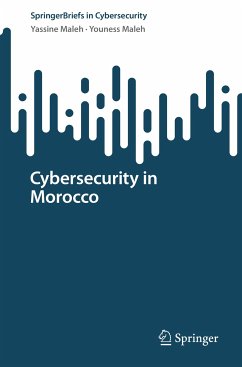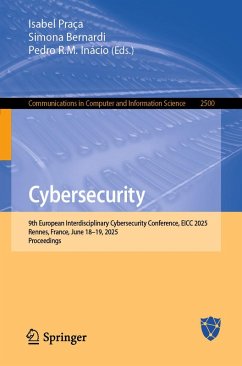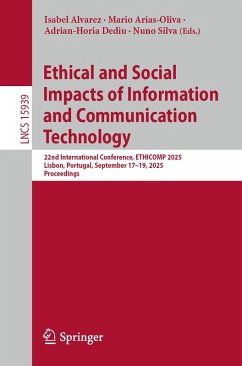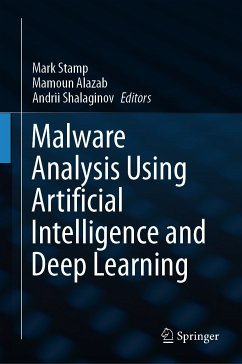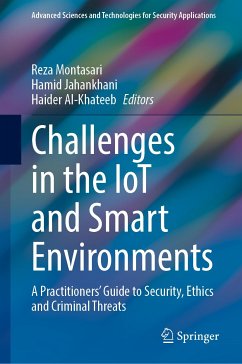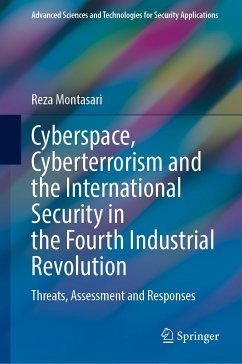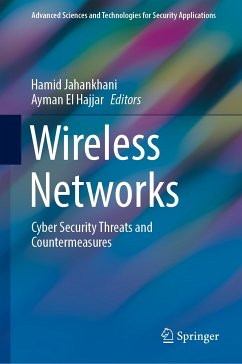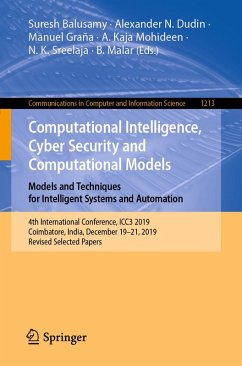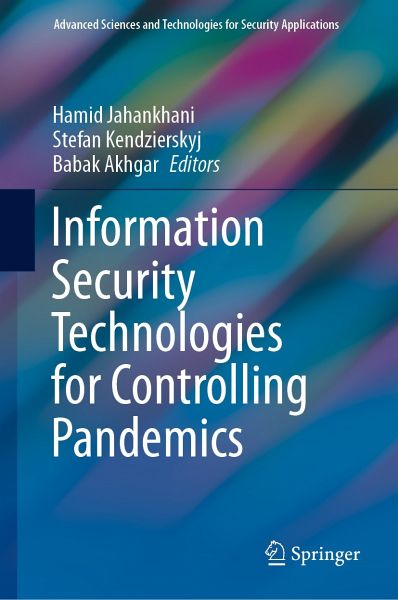
Information Security Technologies for Controlling Pandemics (eBook, PDF)
Versandkostenfrei!
Sofort per Download lieferbar
80,95 €
inkl. MwSt.
Weitere Ausgaben:

PAYBACK Punkte
40 °P sammeln!
The year 2020 and the COVID-19 pandemic marked a huge change globally, both in working and home environments. They posed major challenges for organisations around the world, which were forced to use technological tools to help employees work remotely, while in self-isolation and/or total lockdown. Though the positive outcomes of using these technologies are clear, doing so also comes with its fair share of potential issues, including risks regarding data and its use, such as privacy, transparency, exploitation and ownership.COVID-19 also led to a certain amount of paranoia, and the widespread ...
The year 2020 and the COVID-19 pandemic marked a huge change globally, both in working and home environments. They posed major challenges for organisations around the world, which were forced to use technological tools to help employees work remotely, while in self-isolation and/or total lockdown. Though the positive outcomes of using these technologies are clear, doing so also comes with its fair share of potential issues, including risks regarding data and its use, such as privacy, transparency, exploitation and ownership.
COVID-19 also led to a certain amount of paranoia, and the widespread uncertainty and fear of change represented a golden opportunity for threat actors. This book discusses and explains innovative technologies such as blockchain and methods to defend from Advanced Persistent Threats (APTs), some of the key legal and ethical data challenges to data privacy and security presented by the COVID-19 pandemic, and their potential consequences. It then turns to improved decision making in cyber security, also known as cyber situational awareness, by analysing security events and comparing data mining techniques, specifically classification techniques, when applied to cyber security data.
In addition, the book illustrates the importance of cyber security, particularly information integrity and surveillance, in dealing with an on-going, infectious crisis. Aspects addressed range from the spread of misinformation, which can lead people to actively work against measures designed to ensure public safety and minimise the spread of the virus, to concerns over the approaches taken to monitor, track, trace and isolate infectious cases through the use of technology. In closing, the book considers the legal, social and ethical cyber and information security implications of the pandemic and responses to it from the perspectives of confidentiality, integrity and availability.
COVID-19 also led to a certain amount of paranoia, and the widespread uncertainty and fear of change represented a golden opportunity for threat actors. This book discusses and explains innovative technologies such as blockchain and methods to defend from Advanced Persistent Threats (APTs), some of the key legal and ethical data challenges to data privacy and security presented by the COVID-19 pandemic, and their potential consequences. It then turns to improved decision making in cyber security, also known as cyber situational awareness, by analysing security events and comparing data mining techniques, specifically classification techniques, when applied to cyber security data.
In addition, the book illustrates the importance of cyber security, particularly information integrity and surveillance, in dealing with an on-going, infectious crisis. Aspects addressed range from the spread of misinformation, which can lead people to actively work against measures designed to ensure public safety and minimise the spread of the virus, to concerns over the approaches taken to monitor, track, trace and isolate infectious cases through the use of technology. In closing, the book considers the legal, social and ethical cyber and information security implications of the pandemic and responses to it from the perspectives of confidentiality, integrity and availability.
Dieser Download kann aus rechtlichen Gründen nur mit Rechnungsadresse in A, B, BG, CY, CZ, D, DK, EW, E, FIN, F, GR, HR, H, IRL, I, LT, L, LR, M, NL, PL, P, R, S, SLO, SK ausgeliefert werden.



